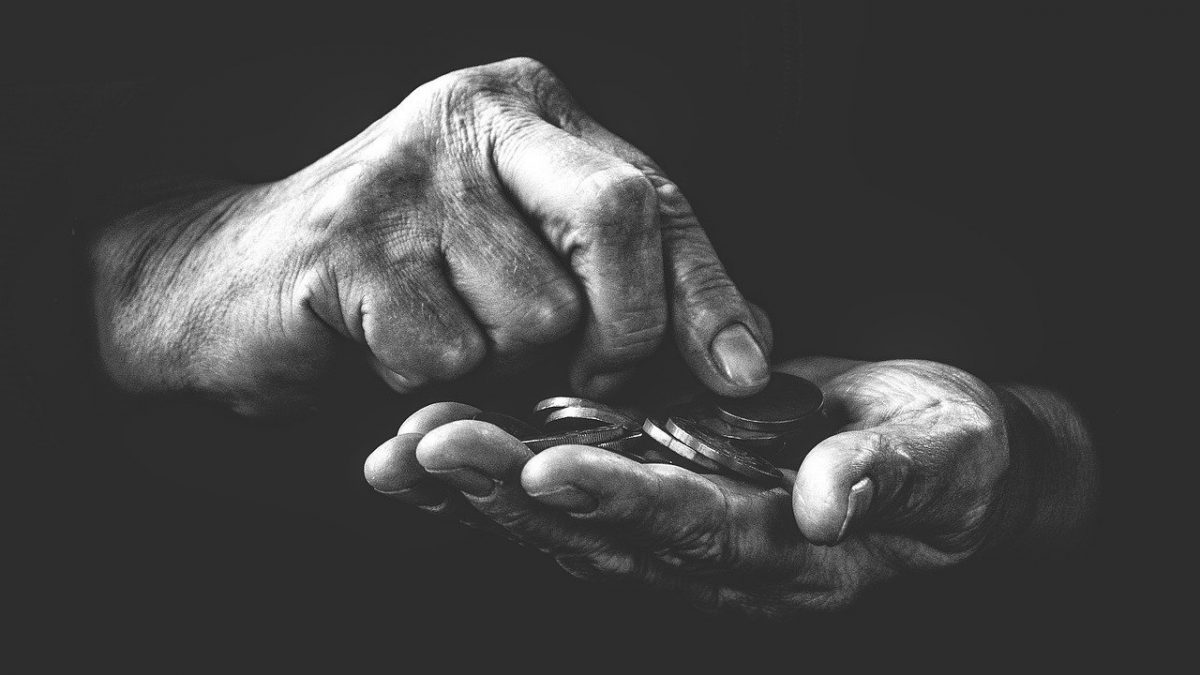At the initiative of the United Nations, 17 October is observed as the International Day for the Eradication of Poverty and Social Exclusion.
While poverty denotes a lack of material or financial resources, social exclusion has a broader meaning – in addition to the economic dimension, it includes social, cultural, political, and other aspects. Reducing poverty and the risk of poverty and social exclusion must remain a priority of social policy, especially in a period of high inflation and significant price increases affecting citizens in all areas of life.
According to data from the Croatian Bureau of Statistics (CBS), the at-risk-of-poverty rate in 2022 stood at 18 percent, while one in five individuals (19.9%) was at risk of poverty or social exclusion, although both rates were lower than the previous year, when the poverty risk was 19.2% and the share of those at risk of poverty or social exclusion was 20.9%.
Specifically, in 2022, one in fourteen individuals (7%) lived in households that could not afford adequate heating during the coldest months, one in six (15.7%) in households that, due to financial difficulties, had been late with payments in the past 12 months, and nearly one in two (44.8%) in households unable to cover an unexpected financial expense from their own resources (amounting to 392 euros or 2,950 kuna).
Furthermore, one in four individuals (26.6%) found it difficult or very difficult to make ends meet, and nearly one in two (42.7%) experienced minor difficulties in doing so, meaning that, overall, more than two-thirds of the country’s population faced some degree of financial strain.
The most vulnerable group were persons over the age of 65 – one in three of whom (32.4%) was at risk of poverty, and 33.5% at risk of poverty or social exclusion. Particularly concerning is the fact that this age group was the only one for which the poverty and social exclusion rates did not decrease compared to the previous year but unfortunately remained the same (poverty risk rate was 32.4% in both 2021 and 2022) or even slightly increased (risk of poverty or social exclusion: 33.3% in 2021, 33.5% in 2022).
Unfortunately, the poorest citizens still do not receive adequate support – financial benefits for the most vulnerable are insufficient, social services remain inaccessible, and the staff tasked with providing support are overburdened. Moreover, the number of recipients of the Guaranteed Minimum Benefit (GMB) has significantly decreased – from 39,000 in 2018 to 28,000 in 2022. One of the recommendations made by the Ombudswoman was to conduct an analysis of the reasons for this decline, but it has yet to be carried out.
On the other hand, the Social Welfare Act (SWA) from February 2022 introduced positive changes for the most economically disadvantaged, through an increase in the calculation coefficient for the GMB and by raising the base amount from 106 euros (800 HRK) to 133 euros (1,000 HRK). However, the amount remains too low to ensure a life in dignity. To achieve this, the GMB should be linked to the at-risk-of-poverty threshold or the minimum wage, and take into account the inflation rate applicable to low-income households.
Additionally, due to oversights during the adoption of the SWA, centres were not able to initiate proceedings on the same day “physically,” which meant that some individuals received the increased GMB earlier, while others received it later.
Therefore, as part of the latest legislative amendments during the summer of this year, the Ombudswoman again recommended to the competent ministry that all recipients of the GMB under the former Social Welfare Act who still meet the eligibility criteria should be granted the increased benefit retroactively, from the date the new Act entered into force – 17 February 2022.
Unfortunately, people living in poverty, in addition to facing social exclusion, also experience stigma and discrimination based on their economic status. As a result, their access to, for example, social and healthcare services, education, employment, and housing is limited. The realization of social and economic rights greatly depends on protection from discrimination, and in this context, awareness-raising and effective protection from discrimination on the grounds of property status or socio-economic position are especially important.
More information about poverty, discrimination based on property status, and its impact on human rights, as well as the Ombudswoman’s recommendations for better protection, can be found in the Ombudswoman’s 2022 Annual Report.





